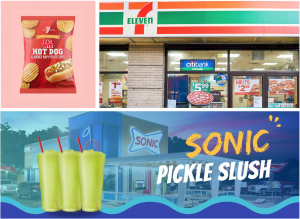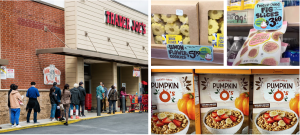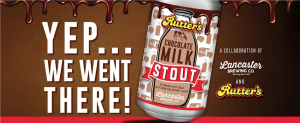Is Timing Everything? The Secret Power of Limited-Time Offer Private Brands
Innovation and adaptability are key to staying competitive in the ever-evolving retail landscape. Retailers constantly seek creative strategies to capture customer interest and drive sales. One emerging tactic that captures attention is the use of limited-time offer (LTO) private brands. But is this strategy truly worthwhile? In this post, we will explore the potential benefits of LTO private brands for retailers, uncovering why this strategy might just be the game-changer you need.

Unpacking the Concept of LTO Private Brands
To understand the potential of LTO private brands, we must first grasp what they entail. Essentially, these are exclusive products sold for a limited period, creating a sense of urgency among consumers. This is like holiday-themed products or seasonal flavors disappearing after a certain time. For retailers, the allure lies in being able to offer something new and fresh, enticing customers back into stores or online.
Limited-time offers aren’t just about scarcity; they’re about creating excitement. When customers know a product won’t be available forever, it can spark curiosity and a must-have mentality. This phenomenon often leads to increased foot traffic and online searches as consumers rush to grab these exclusive items before they’re gone.
This strategy offers a unique opportunity for private brands, which are retailowned labels, to stand out in a crowded market. Unlike national brands, private labels can be more agile, swiftly adapting to trends and consumer preferences. This agility makes them well-suited for LTO strategies requiring quick turnarounds and creative marketing efforts.

Why Scarcity Drives Demand
One psychological principle underpinning LTO private brands’ success is scarcity. This principle suggests that it becomes more desirable when humans perceive something as scarce. Retailers can leverage this instinct by creating products that are available only for a short duration.
This sense of scarcity taps into the Fear of Missing Out (FOMO) that many consumers experience. With social media amplifying buzz around new releases, the urgency to purchase becomes even more pronounced. This effect is particularly potent among younger consumers who are well-connected and eager to share their latest finds with peers.
Studies have shown that limited-time offers can significantly boost sales, sometimes by as much as 300%. This increase in demand can lead to stock shortages, creating yet another layer of scarcity. While stockouts can be frustrating, they also reinforce the exclusivity of the offer, making future LTO releases even more anticipated.

Building Brand Loyalty Through Exclusivity
LTO private brands drive immediate sales and can foster long-term brand loyalty. When consumers associate a retailer with unique, exciting products, they’re more likely to return for future purchases. Each successful LTO release strengthens the customer’s emotional connection with the brand.
Creating a series of LTO products can establish a narrative around a brand, encouraging customers to follow along with each new release. This storytelling approach engages customers and fosters a community of loyal followers eagerly awaiting the next launch.
Furthermore, exclusive offerings can elevate a retailer’s brand perception, positioning it as innovative and trendsetting. This differentiation is crucial in a fierce market competition, and customers have countless choices at their fingertips.

Challenges Retailers May Face
While the benefits of LTO private brands are enticing, retailers must also be mindful of the challenges involved. Successfully implementing this strategy requires careful planning and execution and a deep understanding of the target market.
One significant challenge is forecasting demand accurately. Overestimating can lead to excess inventory while underestimating might leave customers disappointed. Retailers must analyze past data, current trends, and consumer behavior to strike the right balance.
Another hurdle is ensuring consistent quality and supply chain efficiency. Since LTO products are typically produced in smaller quantities, finding reliable suppliers and maintaining quality standards can be more complex than with regular products.
Finally, effectively marketing LTO private brands requires creativity and agility. Retailers must craft compelling stories and promotions that capture attention quickly, leveraging social media, email campaigns, and in-store displays to reach their audience.

Crafting the Perfect LTO Strategy
Executing a successful LTO private brand strategy involves several key steps. Retailers should start by identifying trends and consumer preferences, ensuring that their offerings align with current interests. Collaborating with industry experts and conducting surveys can provide valuable insights into consumers’ wants.
Next, it’s important to design products that stand out. Creative packaging, unique flavors, or innovative features can make LTO products irresistible. Retailers should consider involving customers in the process, such as through voting on new flavors or designs.
Effective communication is also vital. Retailers must create buzz around their LTO launches, using platforms like Instagram, TikTok, and Facebook to generate excitement. Influencer partnerships and teaser campaigns can amplify the reach and impact of these promotions.

Leveraging Technology for Success
Technology plays a crucial role in the success of LTO private brands. Advanced data analytics can help retailers predict trends and demand more accurately, reducing the risk of stockouts or overproduction. Machine learning algorithms can analyze customer preferences and suggest optimal pricing strategies.
Additionally, e-commerce platforms provide the perfect avenue for reaching a broader audience. Online sales channels enable retailers to expand their reach beyond their physical locations, attracting customers from different regions and demographics.
Retailers can refine their LTO strategies over time by implementing customer feedback loops. Surveys, reviews, and social media interactions can provide valuable insights into what worked well and what could be improved in future releases.

Real-Life Success Stories
Several retailers have already harnessed the power of LTO private brands with remarkable success. Take Starbucks’ seasonal drinks, for instance. Their limited-time offerings, like the Pumpkin Spice Latte, have become cultural phenomena, driving significant foot traffic and media attention.
Similarly, Trader Joe’s regularly introduces limited-time products that keep customers returning for more. From seasonal snacks to unique beverages, these offerings create anticipation and delight among loyal shoppers.
These examples demonstrate that with the right approach, LTO private brands can become an integral part of a retailer’s identity, driving both sales and brand recognition.

Evaluating the ROI of LTO Private Brands
Understanding the return on investment (ROI) of LTO private brands involves more than just calculating immediate sales. Retailers must consider factors such as increased foot traffic, brand exposure, and customer engagement.
While short-term profits are important, the long-term impact on brand loyalty and customer retention should not be overlooked. Retailers who consistently deliver memorable LTO experiences are more likely to enjoy repeat business and positive word-of-mouth recommendations.
Measuring the success of LTO campaigns requires a comprehensive approach. Analytics tools are utilized to track metrics such as conversion rates, social media engagement, and customer feedback.

Overcoming Obstacles and Moving Forward
Retailers interested in exploring LTO private brands should be prepared to face challenges head-on. Building a strong team with diverse marketing, supply chain management, and product development skills is essential for overcoming obstacles.
Flexibility and adaptability are also crucial, as trends and consumer preferences can change rapidly. Retailers that remain open to experimentation and innovation are better positioned to succeed in the dynamic world of LTO private brands.
Incorporating feedback and learnings from each LTO campaign can help retailers refine their strategies over time, ensuring continued growth and success.

Conclusion
Limited-time offer private brands present a unique opportunity for retailers to stand out in a competitive market. By tapping into the psychology of scarcity, creating exclusivity, and leveraging technology, retailers can build stronger connections with their customers and drive both short-term sales and long-term loyalty.
For those ready to plunge into the world of LTO private brands, careful planning, execution, and a willingness to innovate are key. Whether you’re a seasoned retailer or just starting out, the potential rewards of this strategy are well worth exploring. With the right approach, your brand can become a beacon of excitement and anticipation for consumers everywhere.